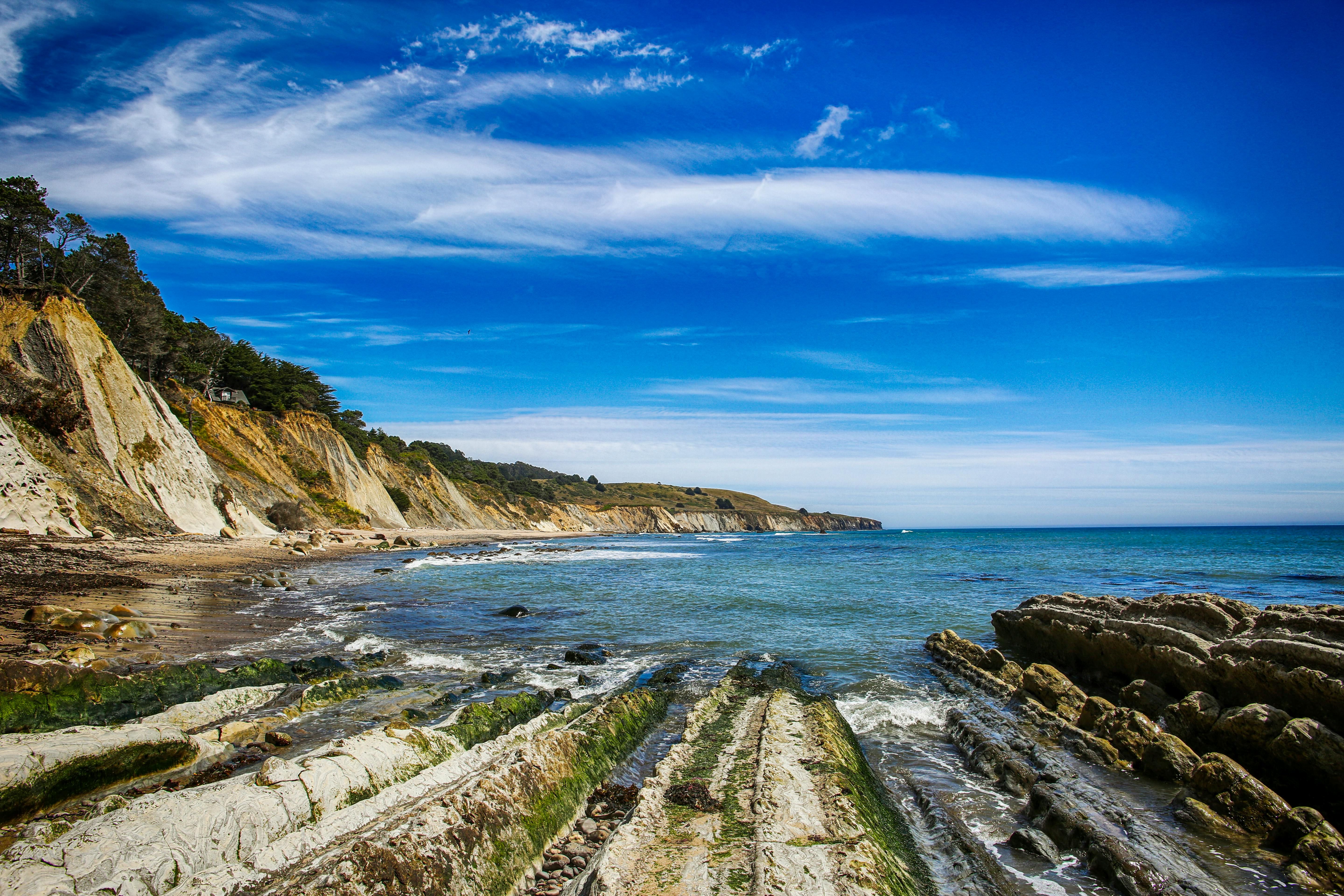California Imposes Mussel Hold-Up Due to Toxin Hazard: Essential Information
Karen Garcia's Warning:California health officials have issued a quarantine on non-commercially harvested mussels, warning that these critters could be potentially poisonous to humans due to naturally occurring toxins during this time of year.
Sound familiar? It's an annual order from the state Department of Public Health that lasts until October 31, urging caution against eating any sport-harvested mussels from the West Coast.
During this six-month period, these pesky mussels might be brimming with toxins that can trigger paralytic shellfish poisoning and domoic acid biotoxins, also known as amnesic shellfish poisoning.
Why's this a thing? Well, it often comes down to overabundant algae—and not the cute, fun kind you'd find in a kid's pool. This algae, some of it toxic, blossoms in large quantities, which becomes a buffet for shellfish species such as mussels, clams, oysters, and scallops. As they feast on this toxic algae, they store the toxins in their tissue.
There's a catch, though. After the algae disappear or are flushed out, it can take days, months, or even longer before the shellfish are safe to eat again—and there's no visual way to tell if they've detoxified. Cooking these shellfish won't rid them of the toxins, either. Yikes!
So, what's the damage from consuming these toxic mussels? Cases of paralytic shellfish poisoning have been linked to 39 deaths in California since 1903[1]. And, while no reported cases of domoic acid poisoning in California have occurred, it can lead to death with no known antidotes[1].
Now, things might seem grim, but don't fear the commercial mussels from certified companies! They're exempt from the quarantine as they're tested regularly for toxins by the state Department of Public Health[2].
Meanwhile, those snacking on clams and scallops should only consume the white meat and avoid the dark parts or internal organs[2].
And here's some good news: our furry friends aren't affected by these toxins—unless you're talking about sea lions contending with domoic acid poisoning, stranding on Southern California beaches[3].
[1]: CNN WireStory California official warns of mussels poisoning as beachgoers spot sea lion deaths[2]: California Proposition 65: Office of Environmental Health Hazard Assessment[3]: Gahr, C., & Kelly, C. R. (2015). Domoic acid poisoning in marine mammals: a synthesis of recent studies. Toxins (Basel, Switzerland), 7(8), 2931-2944.
Climate Change and the Waters of L.A.: The Shocking Truth Behind the Crisis
Olympia Oyster: A Lost Gem and a Potential Climate Solution
Marine Mammals under Attack: The Deadly Effects of Toxic Algae Blooms
- Despite the quarantine, refrain from fearing commercially sourced mussels from certified companies, as they undergo regular testing for toxins by California's Department of Public Health.
- Exercising and maintaining fitness-and-exercise routines during this health-and-wellness-focused summer can help boost your immunity against potential health hazards.
- The USC community in Los Angeles is not immune to the environmental concerns, as climate-change impacts continue to affect the local ecosystem, including oceanic life.
- Sheltering non-commercially harvested mussels during California's annual quarantine period protects citizens from health risks related to biotoxins such as Domoic and indicators of amnesic shellfish poisoning.
- Environmental-science experts are actively researching ways to combat climate-change issues, including analyzing the role of nutrient-rich runoff in promoting harmful algae blooms.
- Experts are working diligently to understand the impacts of climate change, including the potential effects of rising ocean temperatures on the health and vitality of marine species like mussels.
- In contrast to humans, other marine mammals—including sea lions—have been observed to be affected by domoic acid poisoning, with reports of strandings on Southern California beaches.
- Proponents of environmental-awareness and conscious consumerism might consider supporting sustainable seafood alternatives, promoting the health and longevity of our aquatic ecosystems and combating the dangers presented by toxic algae blooms.
- Stay up-to-date on guidance from health officials regarding seafood consumption during this coastal season, prioritizing fresh, clean, and commercial crustaceans over questionable, potentially contaminated options to maintain your health and enjoy the myriad benefits of nutrition.





